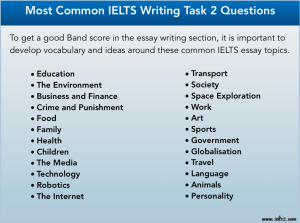نمونه سوالات اسپیکینگ آیلتس موضوع جنگ (نمره 9)
IELTS Speaking Questions with Band 9 Answers about War
در این بخش بیش از 20 نمونه سوال اسپیکینگ آیلتس نمره 9 از آخرین سوالات گزارش شده از سنترهای ایرانی و خارجی برگزار کننده آیلتس مربوط به پارت 1، 2 و 3 با موضوع “جنگ” را برای شما فهرست کرده ایم. در ادامه همچنین نکات گرامری، لغات و دلایل دریافت نمره 9 را توضیح داده ایم. 1000 نمونه سوالات اسپیکینگ آیلتس با جواب PDF پارت 1 2 3 پیشنهاد بعدی ما به شما عزیزان است.
نمونه سوالات اسپیکینگ آیلتس موضوع جنگ (پارت 1)
در پارت اول اسپیکینگ آیلتس پاسخ ها می بایست کوتاه باشند. این بخش بیشتر برای آماده شدن شرکت کننده برای بخش های بعدی هست و ساده ترین سوالات آزمون در همین بخش جای دارند. در اینجا سوالات اسپیکینگ موضوع جنگ که ممکن است در پارت 1 مطرح شوند را با هم میبینیم.
Topic: War (IELTS Speaking Part 1)
1. Do you think war is always avoidable?
While war is tragic, it isn’t always avoidable. Some conflicts escalate due to unresolved disputes or extreme aggression. Diplomatic efforts can often prevent war, but if one party refuses compromise or threatens the safety of others, war might become inevitable. For example, during World War II, the failure of negotiations with Nazi Germany left no alternative but to fight. However, prioritizing peace-building measures and open dialogue can reduce the chances of war significantly. Global cooperation and mutual understanding are essential to prevent violence and promote peaceful solutions in today’s interconnected world.
2. What do you think are the biggest consequences of war?
The consequences of war are devastating and multifaceted. On a personal level, it causes immense human suffering, including loss of lives and displacement. Economically, it destroys infrastructure, stalls development, and leaves nations in debt. Socially, war tears apart communities, leaving survivors traumatized. The environmental impact is also significant, with landscapes destroyed and resources depleted. Additionally, wars create long-term instability, fostering future conflicts. For example, post-war regions often face challenges in rebuilding governance and trust. Ultimately, war affects not only combatants but also civilians, economies, and global security, making its consequences profound and far-reaching.
3. Do you think people today are more opposed to war than in the past?
Yes, people today are generally more opposed to war than in the past due to increased awareness of its devastating effects. The rise of global media and social networks exposes the brutality of conflicts in real-time, fostering empathy and anti-war sentiments. Organizations like the United Nations and human rights groups advocate for peace and highlight the importance of dialogue over violence. Additionally, modern warfare’s environmental and economic consequences are widely recognized, influencing public opinion. However, some conflicts still persist, showing that while attitudes have shifted, resolving global disputes remains a complex challenge.
4. How do wars shape history?
Wars are pivotal in shaping history by altering political boundaries, economies, and societies. For instance, World War II led to the emergence of the United Nations and established the United States and the Soviet Union as superpowers. Wars also drive technological advancements, such as radar and aviation, which later benefit civilian industries. On the downside, they leave behind destruction and trauma, requiring years of recovery. Historical wars often serve as lessons, reminding future generations of the consequences of conflict and the importance of pursuing peace. Their influence on history is both transformative and cautionary.
5. What role does education play in preventing war?
Education plays a crucial role in preventing war by promoting understanding, tolerance, and critical thinking. Teaching history helps students learn from past conflicts and understand the value of peaceful resolutions. Additionally, education fosters empathy by exposing individuals to diverse cultures and perspectives, reducing prejudice and hostility. Schools can also emphasize negotiation and problem-solving skills, equipping future leaders to address disputes diplomatically. By creating informed, compassionate citizens, education contributes to a culture of peace. Ultimately, education not only empowers individuals but also strengthens societies, making it a powerful tool against the root causes of war.
6. How do governments try to prevent wars?
Governments use diplomacy, treaties, and international organizations to prevent wars. Diplomatic negotiations help resolve disputes before they escalate, while treaties establish clear agreements on contentious issues like trade or borders. Participation in organizations such as the United Nations facilitates dialogue and collective action to address global challenges. Governments also invest in peace-building efforts, such as humanitarian aid and development projects, to reduce tensions in vulnerable regions. Despite these measures, the success of prevention depends on mutual trust and cooperation. Preventing war requires sustained effort and a commitment to peaceful conflict resolution.
7. What do you think about the portrayal of war in movies?
The portrayal of war in movies varies greatly. Some films glorify war, focusing on heroism and victory, while others depict its harsh realities, emphasizing the human cost. Realistic portrayals, such as “Saving Private Ryan,” provide valuable insights into the suffering and sacrifices involved, fostering empathy and anti-war sentiments. However, overly dramatized or biased depictions can romanticize violence or misrepresent history. Movies have the power to educate and influence public opinion, so it’s important for filmmakers to strike a balance between storytelling and authenticity. Thoughtful portrayals can spark meaningful discussions about war and its consequences.
8. Do you think technology has made war more destructive?
Yes, technology has significantly increased the destructiveness of war. Advanced weaponry, such as nuclear arms and drones, allows for greater precision but also causes widespread devastation. Cyber warfare has emerged as a new frontier, targeting critical infrastructure without physical conflict. While technology enhances military capabilities, it often leads to higher casualties and environmental damage. For example, atomic bombs dropped during World War II showcased the catastrophic potential of technological warfare. Although these advancements can deter conflicts through fear of mutual destruction, they also highlight the need for stringent regulations and global cooperation to prevent misuse.
9. What lessons can humanity learn from past wars?
Humanity can learn several vital lessons from past wars. Firstly, unresolved grievances and unchecked aggression often lead to conflict, emphasizing the need for diplomacy and dialogue. Secondly, wars show the importance of international cooperation to address global challenges. The formation of the United Nations after World War II exemplifies this. Additionally, the human and economic toll of war underscores the value of peace-building efforts. Finally, the environmental destruction caused by conflicts highlights the need for sustainable development. Learning from these lessons is crucial to fostering a more peaceful and prosperous future.
10. How do wars affect future generations?
Wars profoundly affect future generations by leaving behind psychological scars, economic instability, and disrupted societies. Children growing up in war-torn areas often face trauma, lack of education, and limited opportunities. Rebuilding after conflicts takes decades, delaying development and perpetuating cycles of poverty. Additionally, environmental damage from war, such as landmines or pollution, poses long-term risks. On the positive side, survivors often advocate for peace, inspiring movements to prevent future conflicts. Wars shape the values, challenges, and aspirations of future generations, making it vital to address their root causes and invest in lasting peace.

نمونه سوالات اسپیکینگ آیلتس موضوع جنگ (پارت 2)
در پارت دوم شرکت کننده در آزمون آیلتس 1 دقیقه زمان دارد آماده شود و 2 دقیقه باید به سوال طرح شده پاسخ دهد. یک نمونه از سوالات اسپیکینگ موضوع جنگ در پارت 2 را در ادامه با هم میبینیم.
Describe a historical war that you know about.
You should say:
what the war was
when and where it took place
what caused it
and explain what impact this war had on people or the world.
Model Answer:
One of the most significant wars in history is World War II, which occurred between 1939 and 1945. It involved the majority of the world’s nations, including major powers like the United States, the Soviet Union, Germany, and Japan. The war primarily took place in Europe, Asia, and the Pacific but had a global impact.
The main cause of World War II was the aggressive expansion of Nazi Germany under Adolf Hitler, combined with unresolved tensions from World War I and the failure of the League of Nations. Hitler’s invasion of Poland in 1939 prompted Britain and France to declare war, marking the beginning of the conflict. Other factors, such as economic instability during the Great Depression and the rise of militarism in Japan and Italy, further fueled the war.
World War II had an immense impact on the world. It resulted in over 70 million casualties, including the Holocaust, where millions of Jews and other minorities were systematically murdered. Entire cities were destroyed, and economies were devastated. However, the war also led to the establishment of the United Nations, aiming to prevent future conflicts. It accelerated technological advancements, such as radar and nuclear energy, and reshaped global politics by creating two superpowers: the United States and the Soviet Union.
This war serves as a stark reminder of the horrors of conflict and the importance of international cooperation to maintain peace. Its lessons remain relevant even today.
نمونه سوالات اسپیکینگ آیلتس موضوع جنگ (پارت 3)
Topic: War (IELTS Speaking Part 3)
1. Why do some countries resort to war instead of negotiation?
Countries may resort to war when negotiations fail due to deep mistrust, conflicting interests, or power imbalances. For example, nations with authoritarian leadership often use war to consolidate power or expand territory. Additionally, economic and ideological rivalries may escalate tensions, leaving little room for compromise. In some cases, leaders might use war to distract from domestic problems or to unite their citizens under a common cause. While negotiation is preferable, it requires mutual willingness to address grievances. Unfortunately, in certain scenarios, war becomes a perceived necessity to achieve objectives or defend national sovereignty.
2. How has technology changed modern warfare?
Technology has revolutionized modern warfare, making it both more efficient and more devastating. Drones and precision-guided missiles enable targeted strikes, reducing the need for ground troops. Cyberwarfare has emerged as a new battleground, disrupting infrastructure without physical violence. However, advanced weaponry, such as nuclear arms, increases the stakes, as a single conflict could lead to catastrophic consequences. While these technologies offer strategic advantages, they also blur ethical boundaries, such as the question of accountability for automated systems. Overall, technology has shifted warfare toward remote and digital domains, altering traditional concepts of combat.
3. What can international organizations do to prevent wars?
International organizations, like the United Nations, play a critical role in preventing wars by promoting dialogue, mediating disputes, and imposing sanctions. Peacekeeping missions help stabilize regions on the brink of conflict, while humanitarian aid addresses root causes, such as poverty and inequality. Organizations also encourage disarmament and establish treaties to limit the proliferation of weapons. However, their effectiveness depends on the cooperation of member states. When powerful nations ignore resolutions or prioritize their own interests, the efforts of these organizations are undermined. Strengthening global collaboration is essential to ensure long-term peace.
4. Do you think war is inevitable in human history?
War seems inevitable in human history due to humanity’s tendency toward competition, greed, and ideological conflicts. Territorial disputes and resource scarcity have historically driven wars, as has the quest for power. However, increased globalization and interdependence among nations offer hope for reducing wars. Mechanisms like international diplomacy, economic agreements, and collective security measures can address disputes peacefully. While eliminating war entirely may be unrealistic, fostering a culture of dialogue, compromise, and understanding can minimize its occurrence. History shows both the inevitability of conflict and humanity’s capacity to learn from it.
5. How does war affect the global economy?
War disrupts the global economy by destabilizing markets, increasing military expenditures, and causing supply chain interruptions. Conflicts in resource-rich regions can spike energy and commodity prices, affecting worldwide production and trade. For example, the Gulf War significantly impacted oil prices, leading to economic uncertainty. On the other hand, some economies benefit temporarily from increased arms production and reconstruction efforts. However, long-term consequences, such as inflation, debt, and reduced investor confidence, outweigh these short-term gains. Overall, war creates instability that harms global economic growth and development.
6. How can education contribute to peace-building efforts?
Education fosters peace by promoting tolerance, empathy, and critical thinking. Teaching history helps students understand the causes and consequences of war, emphasizing the importance of peaceful solutions. Intercultural education reduces prejudice and encourages mutual respect, essential for preventing conflicts. Additionally, education equips individuals with problem-solving skills, enabling them to address disputes diplomatically. Programs focusing on global citizenship and human rights further empower future generations to advocate for peace. By addressing ignorance and intolerance, education creates a foundation for harmonious societies, significantly contributing to long-term peace-building efforts.
7. Why do some wars last longer than others?
Wars last longer when underlying issues remain unresolved or when external forces prolong the conflict. For example, civil wars often involve deep-rooted ethnic or ideological divisions, making reconciliation difficult. International involvement, such as foreign aid or arms supplies, can also extend conflicts by supporting opposing sides. Additionally, wars in resource-rich regions often attract external interests, complicating peace efforts. In contrast, wars with clear objectives and decisive leadership tend to end more quickly. The duration of a war ultimately depends on the complexity of its causes and the willingness of involved parties to negotiate.
8. How does war impact innovation and technological advancement?
War drives innovation by creating a demand for advanced technologies. Many breakthroughs, such as radar, jet engines, and the internet, originated from military research during conflicts. The urgency of war accelerates problem-solving, often leading to inventions later adapted for civilian use. However, the focus on military applications can divert resources from social or economic development. While war fosters innovation, the associated human and economic costs outweigh these benefits. Innovations spurred by conflict are a double-edged sword, as they highlight human ingenuity while exposing the destructive nature of war.
9. Do you think media coverage influences public opinion about war?
Yes, media coverage profoundly influences public opinion by shaping perceptions of war. Real-time reporting exposes the brutality of conflict, often swaying public sentiment against it. However, biased or selective coverage can manipulate opinions, either justifying war or vilifying opponents. For example, propaganda during World War II rallied national support, while graphic images from the Vietnam War fueled anti-war movements. Social media has amplified these effects, enabling instant communication but also spreading misinformation. The media’s role is pivotal in informing citizens, but it must maintain accuracy and neutrality to avoid escalating tensions.
10. What are some ethical issues associated with modern warfare?
Modern warfare raises several ethical concerns, such as civilian casualties, the use of drones, and cyberattacks. Precision weapons often miss targets, causing collateral damage, while drones reduce accountability by removing human operators from battlefields. Cyberwarfare blurs the line between combatants and civilians, as attacks on infrastructure affect ordinary people. Additionally, the development of autonomous weapons raises questions about decision-making in life-and-death situations. International laws and conventions aim to address these issues, but rapid technological advancements often outpace regulation. Striking a balance between military necessity and ethical responsibility is a significant challenge in modern warfare.
Analysis of Band 9 Features
- Grammar:
- Varied and complex sentence structures, such as conditionals (“If one party refuses compromise…”), relative clauses (“which often attract external interests”), and passive constructions (“is undermined by”).
- Accurate use of tenses and modal verbs (e.g., “can”, “may”, “might”).
- Vocabulary:
- High-level terms like “escalate,” “proliferation,” “displacement,” and “collateral damage.”
- Precise collocations such as “global interdependence,” “peace-building efforts,” and “military expenditures.”
- Topic-specific language, including “cyberwarfare,” “autonomous weapons,” and “international arbitration.”
- Coherence and Cohesion:
- Logical organization of ideas with cohesive devices like “for example,” “however,” “in contrast,” and “on the other hand.”
- Clear topic development in each response.
- Fluency and Relevance:
- Fully developed answers that stay on topic and provide well-rounded insights.
- Smooth transitions between ideas to maintain fluency.
These elements collectively ensure the responses meet Band 9 standards.
تعیین سطح رایگان اسپیکینگ ❤️
نمونه سوالات اسپیکینگ تاپیک جنگ پارت 1 2 3 اسپیکینگ آیلتس را به همراه سمپل های نمره 9 آن ها با هم دیدیم. در ادامه نمونه سوالات دسته بندی شده اسپیکینگ آیلتس پیشنهاد آخر ما به دوستان گرامی هست. این نمونه سوالات اسپکینگ از پرتکرار ترین تاپیک های این بخش و همچنین جدیدترین موضوعات می باشند. این مجموعه توسط یکی از سایت های معتبر و فعال آیلتس تنظیم شده است. همچنین برای تعیین سطح و تعیین رایگان نمره اسپیکینگ و دریافت جدید ترین سمپل های نمره 9 در کانال تلگرام اسپیکینگ ما همراه باشید و به ادمین برای تعیین نمره اطلاع دهید.






